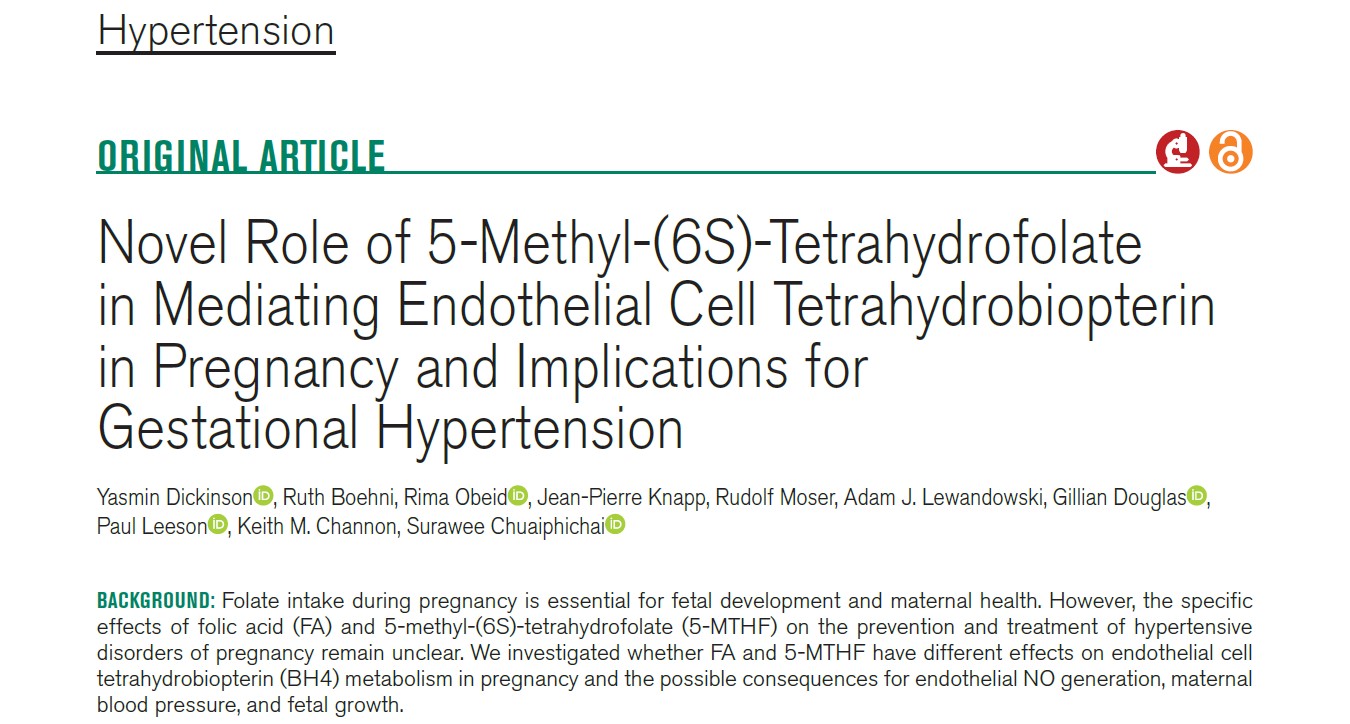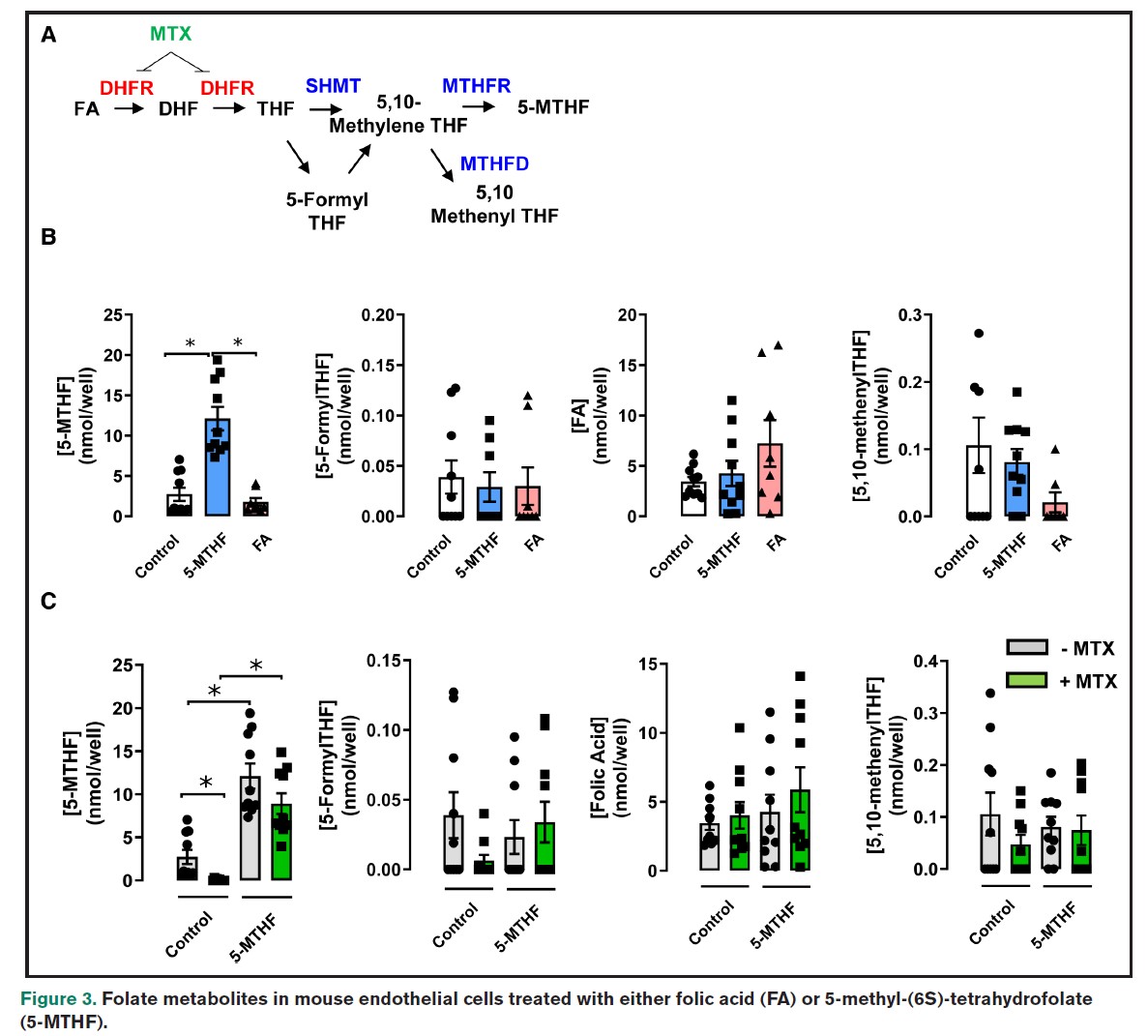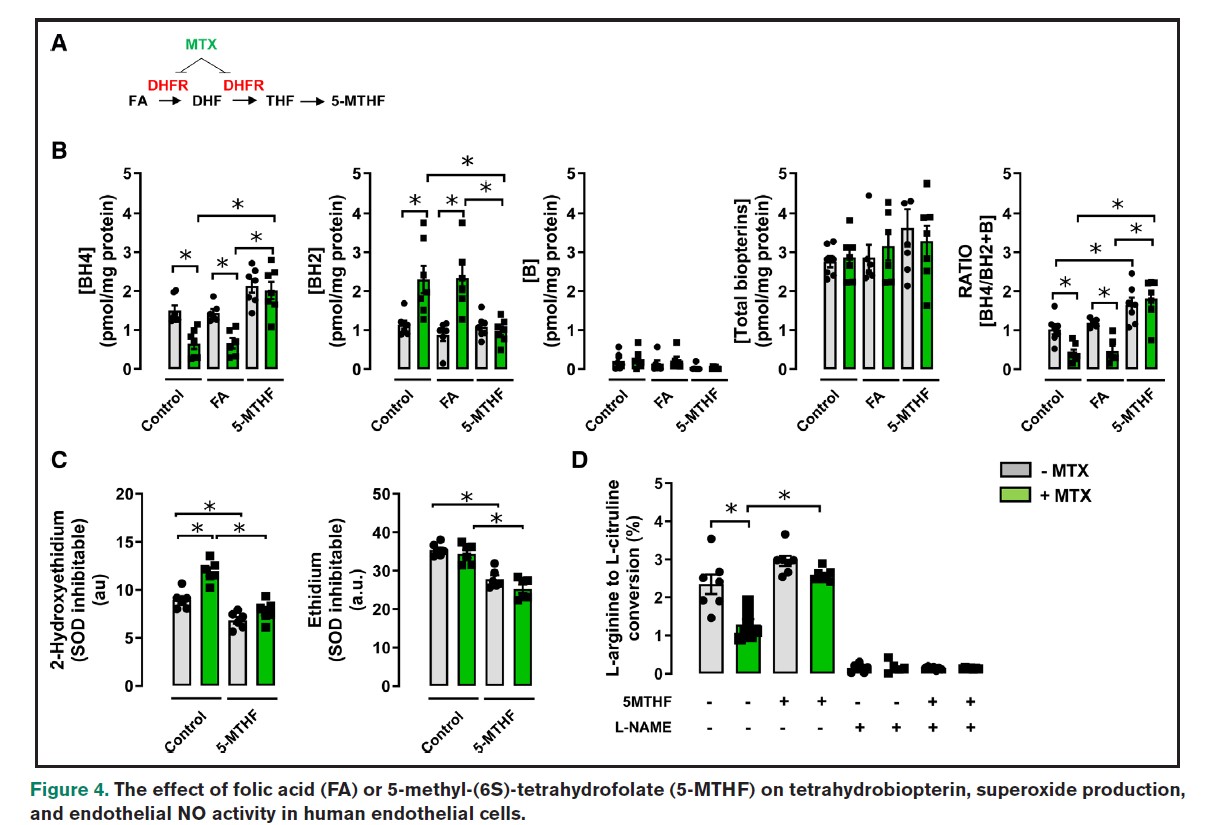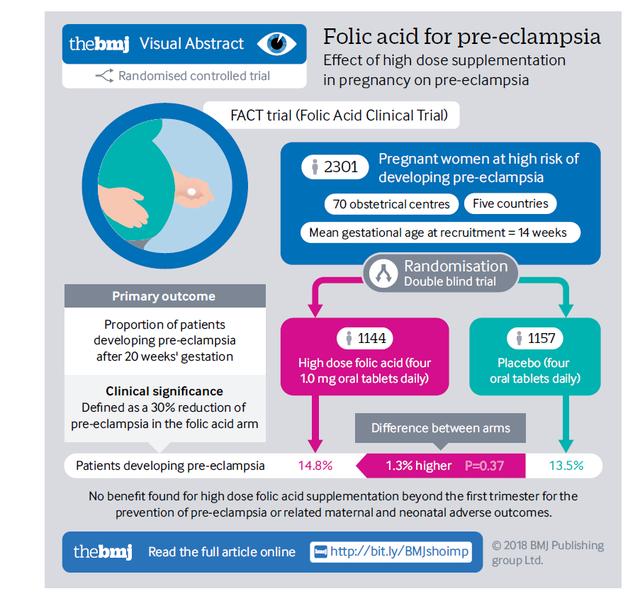During pregnancy, maternal vascular health is critical for maintaining normal blood pressure and ensuring proper fetal development.
Recent groundbreaking research has revealed the potential role of 6S-5-Methyltetrahydrofolate (5-MTHF) in preventing and treating gestational hypertension by modulating tetrahydrobiopterin (BH4) levels in endothelial cells, offering new hope for the health of both mothers and fetuses.

To validate the therapeutic efficacy of 6S-5-methyltetrahydrofolate (5-MTHF), researchers conducted studies in both mouse models and humans.
Mouse
Model Study: Investigating the effects of 5-MTHF and folic acid (FA)
on gestational hypertension and their impact on BH4 metabolism in endothelial
cells.
The study utilized pregnant mouse models (including wild-type and Gch1fl/fl
Tie2cre mice), administering Folic acid (FA) or 5-MTHF treatment before, during
mid-pregnancy, or late in pregnancy, while monitoring blood pressure changes.

Results indicated that, compared to Folic acid (FA), 6S-5-methyltetrahydrofolate not only prevented gestational hypertension but also reduced blood pressure when treatment began at any point during pregnancy. Furthermore, starting treatment from mid-pregnancy normalized placental and fetal growth. In contrast, Folic acid (FA) treatment did not exhibit these effects.
Human
Study: Assessing the impact of 5-MTHF and FA on BH4 levels and
nitric oxide synthase (NOS) activity in endothelial cells of patients with
gestational hypertension.
Researchers collected umbilical cord blood from pregnant women at the NHS
Foundation Trust at Oxford University Hospital, isolated human umbilical vein
endothelial cells (HUVECs), and measured BH4 levels, superoxides, and NOS
activity.

Endothelial cells isolated from umbilical cord blood of patients with gestational hypertension exhibited decreased BH4 levels and NOS activity. However, when these cells were treated with 6S-5-methyltetrahydrofolate, BH4 levels and NOS activity significantly increased, while Folic acid (FA) treatment did not produce this effect.
Future Perspectives:
These findings suggest a potential mechanism for 6S-5-methyltetrahydrofolate (5-MTHF) in preventing gestational hypertension by modulating BH4 levels in endothelial cells.
BH4, as a crucial cofactor, is essential for maintaining vascular health and blood pressure stability.
By elevating BH4 levels, 6S-5-methyltetrahydrofolate may enhance the ability of endothelial cells to produce nitric oxide, thereby aiding in vasodilation, lowering blood pressure and the risk of Gestational Hypertension, and safeguarding the health of both mothers and fetuses.

This study presents a novel perspective for the treatment of gestational hypertension. By supplementing with 6S-5-methyltetrahydrofolate, we may improve vascular health in pregnant women, reduce the risk of gestational hypertension, and promote healthy fetal development. While these findings need to be validated in a broader population, they undoubtedly provide a promising starting point for future treatment strategies. With further research, we are confident that 6S-5-methyltetrahydrofolate (5-MTHF) can become a powerful tool for safeguarding the health of mothers and fetuses.

Tips:Magnafolate, the world's first certified Naturalization folate as 6S-5-methyltetrahydrofolate (active folate), is virtually non-toxic and can rapidly elevate serum and red blood cell folate levels, making it a more suitable source of active folate for mothers and infants.
Reference:
Dickinson, Y., Boehni, R., Obeid, R., Knapp, J.-P., Moser, R., Lewandowski, A. J., Douglas, G., Leeson, P., Channon, K. M., & Chuaiphichai, S. Novel Role of 5-Methyl-(6S)-Tetrahydrofolate in Mediating Endothelial Cell Tetrahydrobiopterin in Pregnancy and Implications for Gestational Hypertension. Hypertension, 2024:81(9), 1910–1923. https://doi.org/10.1161/HYPERTENSIONAHA.124.22838

 Español
Español Português
Português  русский
русский  Français
Français  日本語
日本語  Deutsch
Deutsch  tiếng Việt
tiếng Việt  Italiano
Italiano  Nederlands
Nederlands  ภาษาไทย
ภาษาไทย  Polski
Polski  한국어
한국어  Svenska
Svenska  magyar
magyar  Malay
Malay  বাংলা ভাষার
বাংলা ভাষার  Dansk
Dansk  Suomi
Suomi  हिन्दी
हिन्दी  Pilipino
Pilipino  Türkçe
Türkçe  Gaeilge
Gaeilge  العربية
العربية  Indonesia
Indonesia  Norsk
Norsk  تمل
تمل  český
český  ελληνικά
ελληνικά  український
український  Javanese
Javanese  فارسی
فارسی  தமிழ்
தமிழ்  తెలుగు
తెలుగు  नेपाली
नेपाली  Burmese
Burmese  български
български  ລາວ
ລາວ  Latine
Latine  Қазақша
Қазақша  Euskal
Euskal  Azərbaycan
Azərbaycan  Slovenský jazyk
Slovenský jazyk  Македонски
Македонски  Lietuvos
Lietuvos  Eesti Keel
Eesti Keel  Română
Română  Slovenski
Slovenski  मराठी
मराठी  Srpski језик
Srpski језик 








 Online Service
Online Service